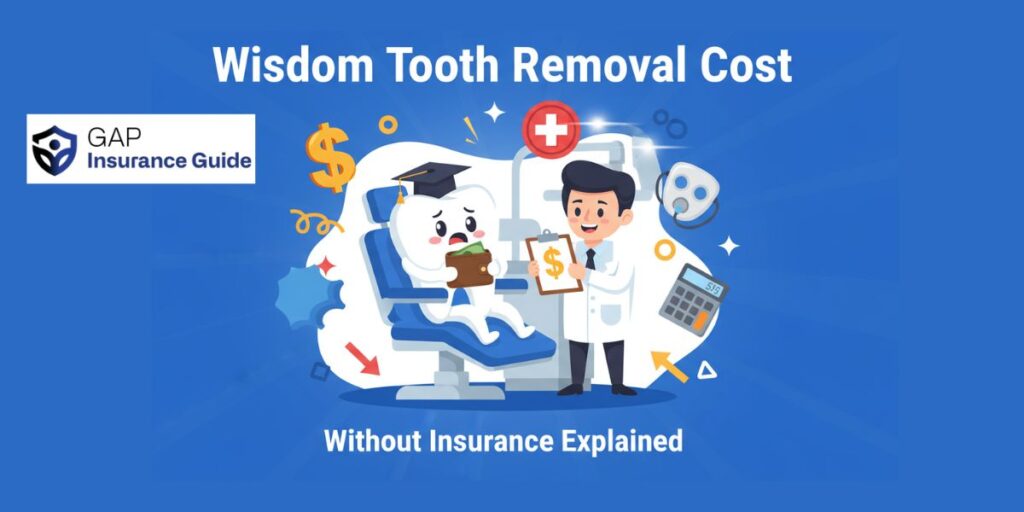Imagine sitting in a dentist’s chair, clutching your jaw, and wondering not just about the pain of a wisdom tooth extraction—but the cost. For many Americans without dental insurance, this scenario is all too familiar. Dental care in the U.S. can feel like a luxury, with nearly 74 million Americans lacking dental coverage as of recent surveys. Among the most common procedures people face in their teens and twenties is wisdom tooth removal. But how much does it really cost if you’re paying out of pocket? Let’s break it down clearly, explore what affects the price, and look at ways to make it more affordable.
The Basics: What Wisdom Teeth Are and Why They’re Removed
Wisdom teeth are the third set of molars that typically appear between ages 17 and 25. For some, they come in smoothly. But for many, they’re impacted—meaning they don’t fully erupt, get stuck at an angle, or crowd existing teeth. This can cause pain, infection, and even long-term dental issues. That’s why dentists often recommend extraction before complications worsen.
The Cost Without Insurance
The price of wisdom tooth removal varies widely based on several factors:
- Simple Extraction (when the tooth has erupted): $75–$200 per tooth
- Surgical Extraction (impacted or partially erupted teeth): $225–$600 per tooth
- All Four Wisdom Teeth: $1,000–$3,000 total
If sedation or general anesthesia is needed, expect an additional $250–$800. X-rays and consultations may also add to the bill.
So, someone needing four impacted wisdom teeth removed with anesthesia could face a bill upward of $3,500 without insurance.
Why Costs Vary So Much
Several factors influence the final cost:
- Geography: Prices tend to be higher in large metro areas than in rural regions.
- Complexity: The deeper or more angled the tooth, the more surgical skill (and cost) required.
- Anesthesia Choice: Local anesthesia is cheapest; IV sedation or general anesthesia costs significantly more.
- Provider: An oral surgeon typically charges more than a general dentist but is often necessary for complicated cases.
Ways to Save on Wisdom Tooth Removal
Going without insurance doesn’t mean you’re out of options. Here are some ways to reduce costs:
- Dental schools: Teaching hospitals often offer procedures at reduced prices performed by supervised students.
- Discount plans: Dental savings plans aren’t insurance but can cut 10–60% off common procedures.
- Community clinics: Some nonprofits and health centers provide low-cost dental care based on income.
- Payment plans: Many oral surgeons allow installment payments instead of requiring full upfront costs.
- Shop around: Quotes can differ by hundreds of dollars even within the same city.
The Bigger Picture: Dental Health and Everyday Life
Delaying wisdom tooth removal due to cost can create more expensive issues later, such as infections or damage to nearby teeth. Unfortunately, lack of dental coverage remains a major barrier. While the average annual dental insurance premium is about $350, it may still save money if major procedures are needed.
Dental health isn’t just about smiles—it’s tied to overall health, affecting nutrition, sleep, and even heart health. That’s why understanding costs and options matters so much for everyday life.
Real-World Example
Take Sarah, a 24-year-old recent college graduate in Texas without dental insurance. When she developed swelling and pain from impacted wisdom teeth, her oral surgeon quoted $3,200 for extraction under anesthesia. Unsure how to afford it, she contacted a local dental school, where supervised students performed the surgery for $1,200. The process took longer, but the care was safe, professional, and dramatically more affordable. Her case highlights how exploring alternative care options can make essential treatment possible, even without insurance.
Conclusion
Wisdom tooth removal without insurance can cost anywhere from a few hundred dollars for a simple extraction to several thousand for surgical removals with anesthesia. While the price tag can feel overwhelming, resources like dental schools, savings plans, and payment options make treatment more accessible.
Looking ahead, the bigger question remains: Should essential dental procedures be so costly in the first place? As the U.S. continues to debate healthcare reform, dental coverage often lags behind. For individuals, the best path is to plan early, explore cost-saving options, and prioritize oral health before problems escalate.
After all, your wisdom teeth might not make you wiser—but making informed financial choices about them certainly will.
I’m Abhilash, a finance and business content writer passionate about simplifying money matters. I share practical insights on finance, business growth, and insurance to help readers make informed decisions. Through my blogs and articles, I aim to provide clear, reliable, and actionable advice for smarter financial planning and success.



